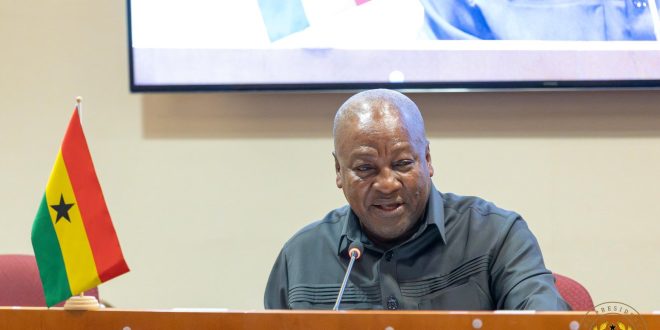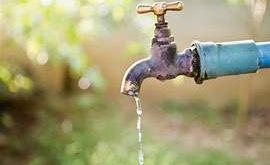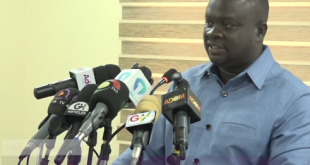Ghana has officially pledged to achieve universal electricity access by 2030, joining 16 other African nations in endorsing National Energy Compacts under the ambitious Mission 300 initiative—led by the World Bank and African Development Bank (AfDB).
Speaking at the Bloomberg Philanthropies Global Forum, President John Dramani Mahama reaffirmed Ghana’s commitment to energy-driven development:
“Ghana believes universal energy access is key to empowering businesses, reducing poverty, and creating equal opportunities. This goal can only be achieved through strong government–private sector partnerships, supported by an enabling environment for sustainable investment.”
Mission 300: Africa’s Biggest Energy Expansion Drive
Mission 300 aims to connect 300 million Africans to electricity by 2030. Since its launch, the initiative has already delivered power to 30 million people, with plans underway to reach 100 million more in the next phase.
The National Energy Compacts serve as detailed country-level action plans, outlining reform strategies, investment opportunities, and regulatory frameworks to fast-track access and affordability.
Ghana’s commitment aligns with a broader continental push for inclusive, clean, and reliable energy access.
A Continental Movement
Leaders across Africa shared their energy visions at the forum:
- Botswana’s President Duma Boko: Pledged to deliver “accessible, reliable and affordable energy as a basic human need” to fuel jobs and economic transformation.
- Cameroon’s President Paul Biya: Promised reforms to expand renewable energy and drive the country’s low-carbon transition.
- Republic of Congo’s President Denis Sassou Nguesso: Highlighted Congo’s vast 27,000 MW hydro potential, saying it could supply over one-third of Africa’s electricity needs.
- Ethiopia’s President Taye Atske Selassie: Emphasized regional power integration and unlocking renewables as the path forward.
- The Gambia’s President Adama Barrow: Described electricity as central to modernizing infrastructure and governance in the energy sector.
- Kenya’s President William Ruto: Positioned clean power access as the backbone of his Bottom-Up Economic Transformation Agenda.
- Mozambique’s President Daniel Chapo: Aimed to position Mozambique as a regional energy hub.
- Sierra Leone’s President Julius Maada Bio: Called their compact “the most ambitious energy infrastructure initiative ever developed” for the country.
Backing from Global Partners
World Bank President Ajay Banga framed Mission 300 as “more than a target,” calling it a historic opportunity to catalyze structural reforms:
“Electricity is the bedrock of jobs, opportunity, and economic growth… Mission 300 is forging enduring reforms that slash costs, strengthen utilities, and draw in private investment.”
AfDB President Dr. Sidi Ould Tah echoed this sentiment:
“Reliable, affordable power is the fastest multiplier for small businesses, agro-processing, digital work, and industrial value-addition. Give a young entrepreneur power, and you’ve given them a paycheck.”
Ghana’s Role in the Future of African Energy
With its National Energy Compact, Ghana positions itself at the forefront of the continent’s most transformative energy initiative to date. Backed by international financial institutions and driven by the urgency of equitable development, Ghana’s goal of universal electricity access by 2030 is now part of a larger movement reshaping Africa’s energy landscape.
 Adoa News Adoa News
Adoa News Adoa News




